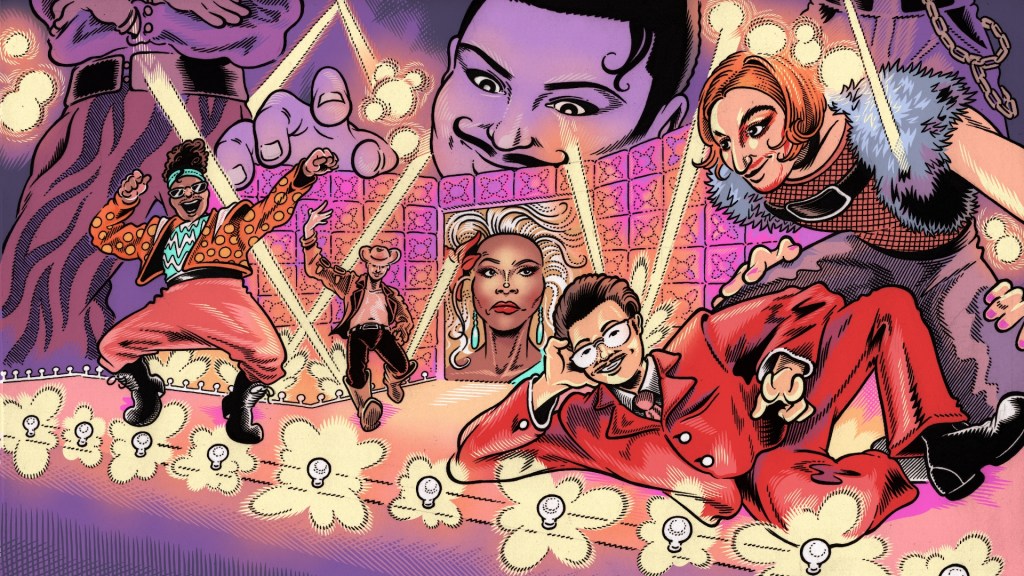From our Clueless-quoting love of teen films to the ubiquitous choker, millennial culture is no stranger to 90s nostalgia. But one cultural product of the decade seems to have quietly died out: the erotic thriller. These overheated Hollywood crime dramas typically featured psychotic women and dirty sex scenes, but are now mostly ignored or forgotten entirely. The erotic thriller was a distinctive genre, and is now seen as a bad-taste beacon of Hollywood past. But is its dismissal deserved, or do films like The Last Seduction offer something more revealing about how women were seen at the time?
It’s hard to deny that the framework of most erotic thrillers is misogynistic. Fatal Attraction might be the worst offender—a bunny-boiling homewrecker (Glenn Close) is the villain of the tale, while the married man who sleeps with her is absolved of guilt. The typical woman of the erotic thriller—Sharon Stone’s icy Catherine Trammell in Basic Instinct or Linda Fiorentino’s brusque Bridget in The Last Seduction—is manipulative and brilliant, enjoys casual sex but uses it as a tool to get what she wants, and is utterly amoral.
Videos by VICE
David Fincher’s adaptation of Gillian Flynn’s Gone Girl employs a similar trope, but this female antagonist has largely disappeared from the landscape of contemporary film. When Fatal Attraction was released in 1987, it was critically lauded and commercially successful, becoming the highest-grossing film worldwide that year. Given the genre’s popularity at the time, and the direct-to-video spinoff market it spawned, there are few traces of the erotic thriller left on the culture it once dominated. As film critic Matthew Turner, who co-hosts Fatal Attractions, a podcast on the genre, puts it: “Modern versions these days (e.g. Beyonce in Obsessed or Rosario Dawson in Unforgettable) seem to fall flat and don’t strike a chord with audiences.”
Watch: Running an Erotic Publishing Empire
At the British Film Institute, programmers of the ongoing Thriller season are looking to interrogate and reconsider what the erotic thriller stood for and what its popularity meant. “Even in the cinephile community, erotic thrillers are often mocked,” BFI programmer Anna Bogutskaya tells me.
But audiences of the time were evidently hungry for dark, transgressive cinema that could also be thrillingly sexual. Many prominent erotic thrillers were written and directed by men, and it’s clear that their softcore gaze is mostly trained on the female body. There’s no lack of bouncing breasts in erotic thrillers, but there is remarkably little pay-off when it comes to Michael Douglas showing skin in Fatal Attraction or Basic Instinct. At least as far as hetero women are concerned, the undressed male star is few and far between.
With that one-sided gaze in place, the erotic thriller is more concerned with exploiting—and then condemning—the feminine wiles of its women, rather than offering genuine sensuality. Still, Bogutskaya thinks there are other vicarious thrills to be found in the genre. “Even the most failed of erotic thrillers still present active, overtly sexual, overtly ambitious, driven women,” she tells me.

It’s true: These women may be villains, but they also aggressively reclaim the word “slut.” They tend to be cheerfully promiscuous: Catherine in Basic Instinct brazenly tells the police that she likes a man who can give her pleasure. In The Last Seduction, Bridget calls her rube boyfriend her “designated fuck” and laughs when he says he feels like a sex object. These women actively reject domesticity in all its forms, sniping about “hating rugrats” and holding intimidatingly high-powered careers as stockbrokers and novelists.
They’re a man’s worst nightmare, and there’s a certain power in that. A full-blown female psychopath is still relatively rare to behold in mainstream film, and the erotic thriller gave us plenty of those. On some level, a film like Basic Instinct “invites you to enjoy [Catherine’s] victory, and the fact that she’s never not in control,” Turner says.
Sartorially speaking, the garb of the erotic thriller also had its own story to tell. Linda Fiorentino dons a gorgeously monochrome wardrobe of glamourous skirt-suits in The Last Seduction, and Sharon Stone’s numerous appearances in films across the genre all feature her in well-coiffed good form. The characters abide by the power-suit feminist look of the 80s and 90s, polished and lipsticked in all the materialist frills of the time. This makes them representative of something that is seemingly mistrusted and despised by the makers of erotic thrillers: the independent working woman.
Even if these femme fatales are male creations, their bad behavior can still be refreshing. They turn men into pliable playthings, and the punchline of almost all of these films revolves around one idea: Men are basically stupid; blinded by sex, and helpless in the face of it. In Basic Instinct, Michael Douglas runs the risk of being gruesomely murdered with an ice pick just to get his so-called “fuck of the century” from Sharon Stone. It’s ridiculous, but it happens repeatedly in films from Sliver to Jade. Maybe the moral of the story is this: The women of the erotic thriller might be evil, but the men are plain old dumb.
Today, these films don’t have real successors in terms of their style or politics. The reality is that the once-voguish erotic thriller dived into sex and power in the most melodramatic and twisted ways—and perhaps that’s why there’s so little nostalgia for them. “Doing the podcast,” Matthew Turner tells me, “We’ve found a lot of overlap between erotic thrillers and yuppies-in-peril movies, where on some level you’re kind of wanting the lead characters to suffer in some way.”
The lowest-common-denominator attitude of their creators is that women essentially want money and men want sex, making neither gender particularly likeable—so no wonder their questionable, queasy charms aren’t easily enjoyed with unadulterated nostalgia. Viewed today, erotic thrillers are bitterly cynical about gender relations; they ask us to assume the worst of both men and women. Where’s the fun in that?




